
Serowe: A Cultural and Historical Gem in Botswana
Serowe, located in the heart of Botswana, is a city rich in history and culture. Known as the birthplace of Botswana's first president, Sir Seretse Khama, Serowe offers a fascinating glimpse into the nation's past and present. The city is home to the Khama III Memorial Museum, where visitors can explore exhibits on the Khama family and the history of Serowe and Botswana. The museum also showcases traditional crafts and artifacts, providing insight into the local culture and heritage. The city is surrounded by stunning landscapes, including the Thathaganyane Hill which offers breathtaking views of the surrounding area. Nature lovers will enjoy the nearby Khama Rhino Sanctuary, a community-based wildlife project that provides a safe haven for endangered rhinos and other wildlife. The sanctuary is a great spot for game drives, bird watching, and even camping, making it a must-visit for nature enthusiasts. In Serowe, you'll also find vibrant local markets where you can experience the hustle and bustle of daily life. These markets are a great place to shop for handmade crafts, fresh produce, and traditional foods. The warm and welcoming atmosphere of the city and its residents ensures that visitors feel at home. Whether you're interested in history, culture, or nature, Serowe offers a diverse range of experiences that cater to all types of travelers.
Local tips in Serowe
- Visit the Khama III Memorial Museum early in the day to avoid crowds and make the most of your visit.
- Bring binoculars for bird watching at the Khama Rhino Sanctuary.
- Wear comfortable shoes for exploring Thathaganyane Hill and the surrounding landscapes.
- Try to attend a local market to experience traditional foods and crafts.
- Consider renting a car for easier access to nearby attractions and greater flexibility during your stay.
Serowe: A Cultural and Historical Gem in Botswana
Serowe, located in the heart of Botswana, is a city rich in history and culture. Known as the birthplace of Botswana's first president, Sir Seretse Khama, Serowe offers a fascinating glimpse into the nation's past and present. The city is home to the Khama III Memorial Museum, where visitors can explore exhibits on the Khama family and the history of Serowe and Botswana. The museum also showcases traditional crafts and artifacts, providing insight into the local culture and heritage. The city is surrounded by stunning landscapes, including the Thathaganyane Hill which offers breathtaking views of the surrounding area. Nature lovers will enjoy the nearby Khama Rhino Sanctuary, a community-based wildlife project that provides a safe haven for endangered rhinos and other wildlife. The sanctuary is a great spot for game drives, bird watching, and even camping, making it a must-visit for nature enthusiasts. In Serowe, you'll also find vibrant local markets where you can experience the hustle and bustle of daily life. These markets are a great place to shop for handmade crafts, fresh produce, and traditional foods. The warm and welcoming atmosphere of the city and its residents ensures that visitors feel at home. Whether you're interested in history, culture, or nature, Serowe offers a diverse range of experiences that cater to all types of travelers.
When is the best time to go to Serowe?
Iconic landmarks you can’t miss
Cycad Palm Hotel
Enjoy a relaxing stay at Cycad Palm Hotel in Serowe, with modern amenities and easy access to local attractions.

Serowe Hotel from P660 a night
Experience comfort and convenience at Serowe Hotel, your gateway to exploring the rich history and natural beauty of Serowe, Botswana.
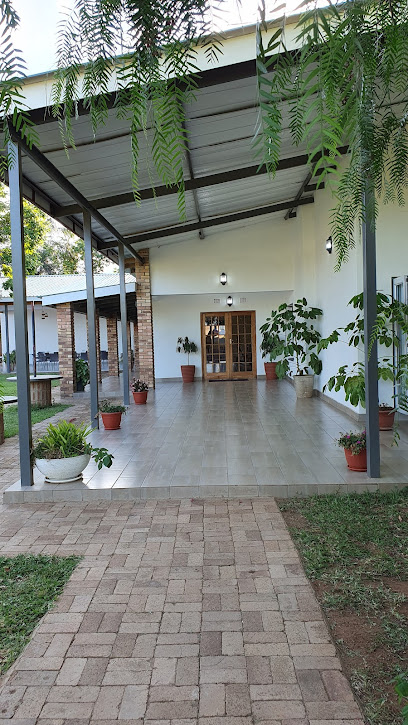
Serowe Barcelos
Experience the vibrant flavors of Serowe at Barcelos, where delicious peri-peri chicken and a warm, inviting atmosphere await!
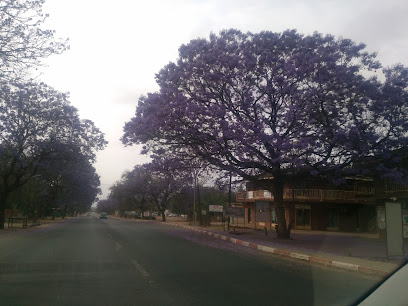
Honeymoon Hotel
A comfortable and conveniently located hotel in Serowe, Botswana, perfect for exploring local culture and nearby attractions.
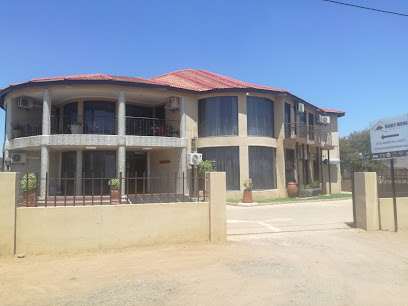
My Destiny Gardens
Discover a tranquil oasis in Serowe: lush gardens, comfortable lodging, and a serene escape at My Destiny Gardens.
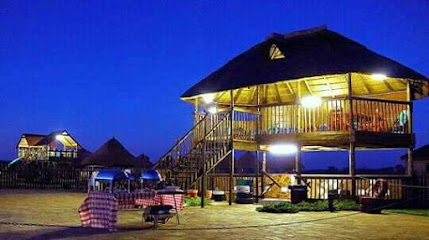
Khama III Memorial Museum
Discover the rich history and cultural heritage of Serowe and the Khama family at this captivating memorial museum in Botswana.
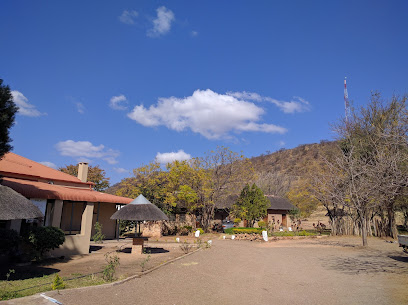
Department Of Tourism Serowe
Your essential resource for exploring Serowe and the Central District of Botswana, offering expert travel advice and local insights.
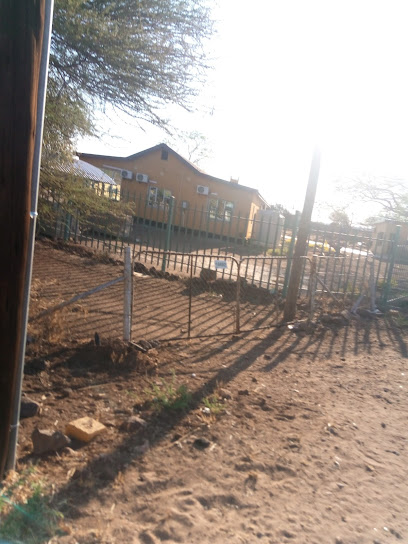
Thataganyane
Explore Thataganyane in Serowe, Botswana: A historical landmark with layered sandstone rocks and a rich missionary past dating back to the 1900s.

Unmissable attractions to see
Kennedy Gardens
Experience the natural beauty and tranquility of Kennedy Gardens in Serowe, Botswana, a perfect retreat for relaxation and exploration.
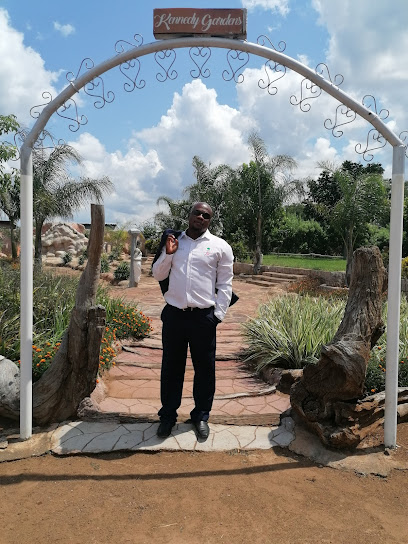
Zebra Statue
Discover the iconic Zebra Statue in Botswana, a vibrant landmark celebrating local artistry, culture, and the beauty of Botswana's wildlife.
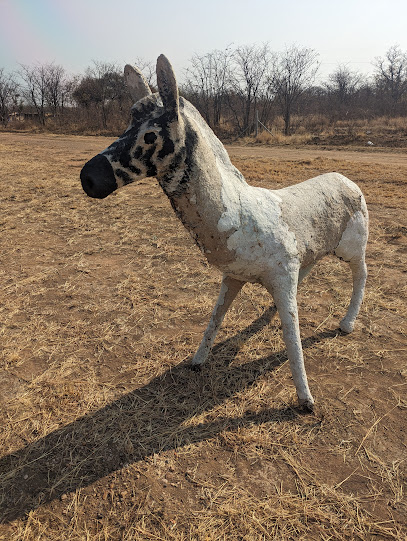
Raby Farms & Glamping
Experience nature and luxury at Raby Farms & Glamping in Serowe, Botswana. A serene escape with vibrant gardens and unforgettable glamping.
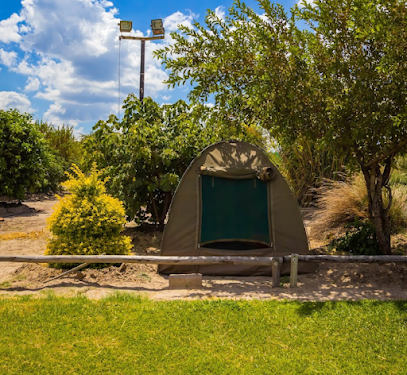
Thorntree Farm
Discover nature and culture at Thorntree Farm in Palapye, Botswana – a perfect escape for tranquility and authentic experiences.
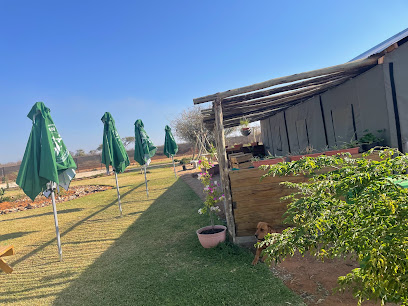
Master Farm Bw
Escape to Master Farm Bw in Serowe: Discover serene gardens, peaceful camping, and the tranquil beauty of Botswana's countryside.
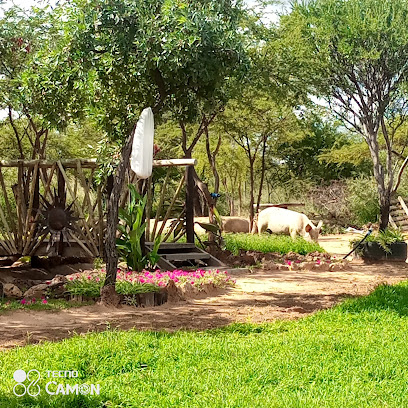
Lipscombe Monument
Discover the historical Lipscombe Monument in Botswana, a tribute to the nation's heritage and stunning natural landscapes.
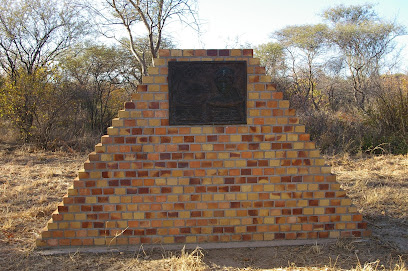
Seropola
Discover Seropola's breathtaking hiking trails in Serowe, Botswana, offering outdoor adventures and serene nature exploration for all skill levels.

outback adventure farm
Discover tranquility and nature's beauty at Outback Adventure Farm in Palapye, Botswana. A perfect escape for families and nature lovers.
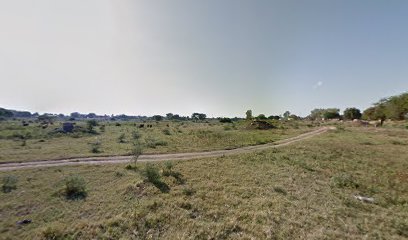
Mmanotha Gardens
Discover tranquility at Mmanotha Gardens in Serowe, Botswana – a perfect escape for nature lovers and those seeking a peaceful retreat.

Motolo Dam
Discover the serene beauty of Motolo Dam near Phikwe: perfect for nature, relaxation, and stunning sunsets in Botswana's heartland.

MmaMpho Gardens
Escape to the tranquility of MmaMpho Gardens in Serowe, Botswana, a perfect spot for nature lovers, picnics, and peaceful relaxation.

Rhyno Sanctuary
Discover Botswana's wildlife at Khama Rhino Sanctuary: A community-based project protecting rhinos and offering unforgettable safari experiences near Serowe.

Free space
Escape to Khurumela Park in Palapye: a serene natural retreat with lush landscapes, walking trails, and a peaceful atmosphere for all ages.
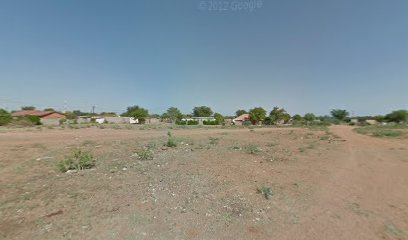
Essential places to dine
Cycad Palm Hotel
Experience exceptional comfort at Cycad Palm Hotel in Serowe - your gateway to Botswana's vibrant culture and stunning landscapes.

Serowe Hotel from P660 a night
Experience authentic Botswana hospitality at Serowe Hotel - your cozy retreat with delicious dining options and convenient amenities.
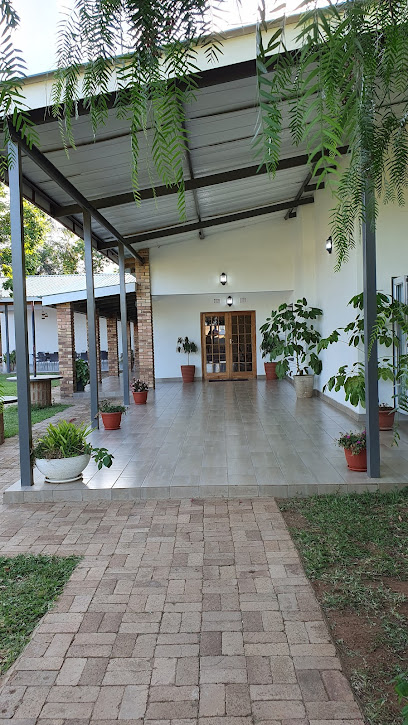
Debonairs Pizza
Experience deliciously crafted pizzas at Debonairs Pizza in Serowe—perfect for takeout and family dining.
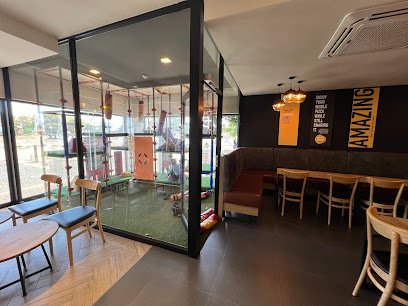
Serowe Barcelos
Experience the culinary delights at Barcelos in Serowe – where local flavors meet international cuisine.
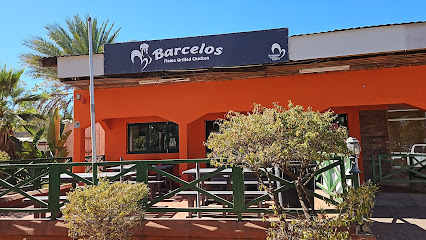
HILL VIEW INN HOTEL
Discover comfort and local charm at Hill View Inn Hotel in Serowe - your perfect base for exploring Botswana's rich culture.

The Winning Lounge Liquor Restaurant
Experience the vibrant social scene at The Winning Lounge in Serowe - where great drinks meet warm hospitality.
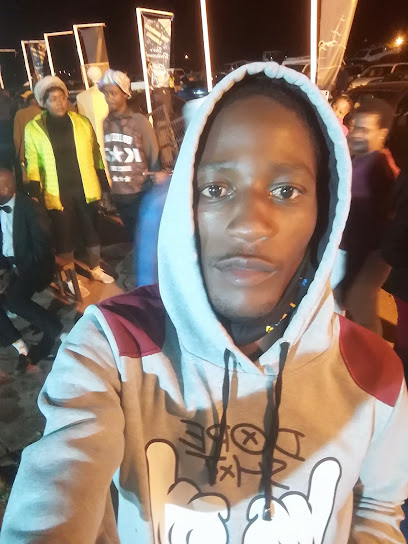
Lentswe Lodge
Discover comfort and tranquility at Lentswe Lodge in Serowe, Botswana – your perfect base for cultural exploration.
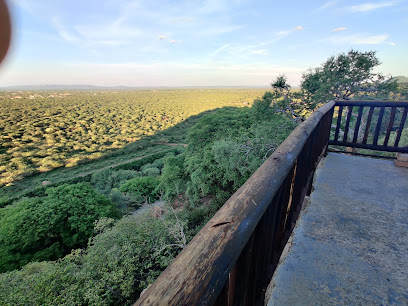
Khama Rhino Restaurant
Savor delicious cuisine amidst breathtaking wildlife views at Khama Rhino Restaurant in Botswana's stunning sanctuary.
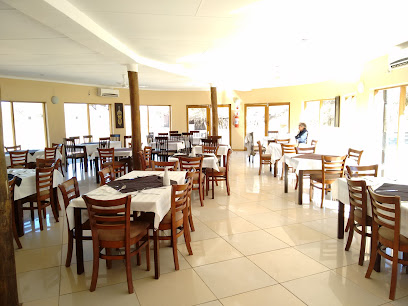
Hungry Lion Serowe
Experience mouthwatering fried chicken at Hungry Lion Serowe - a culinary gem in Botswana's vibrant dining scene.
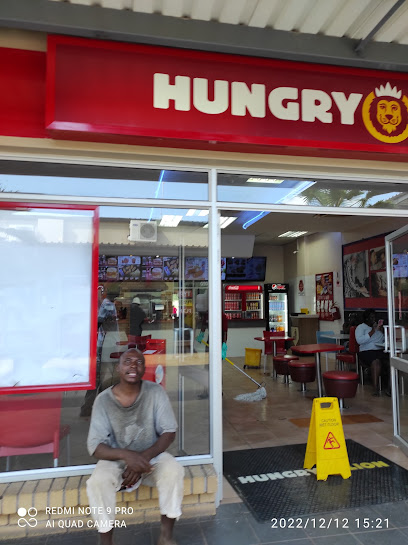
The Place Liquor Restaurant
Discover the lively ambiance and diverse drink selection at The Place Liquor Restaurant in Serowe - your gateway to local flavors and nightlife.
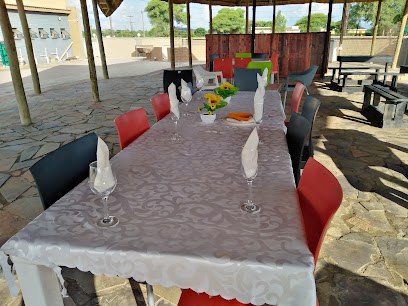
Mantlentle Events Garden - Serowe
Explore Mantlentle Events Garden: A serene restaurant offering delightful local cuisine in lush surroundings perfect for relaxation or celebration.
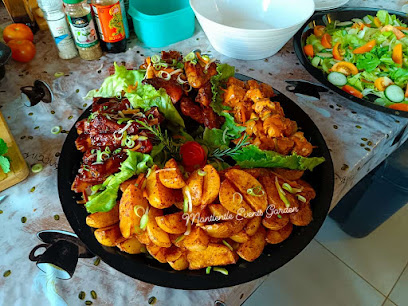
Krispy Krispy Fried Chicken
Indulge in mouthwatering fried chicken at Krispy Krispy Fried Chicken in Serowe, where every bite promises crispy perfection.
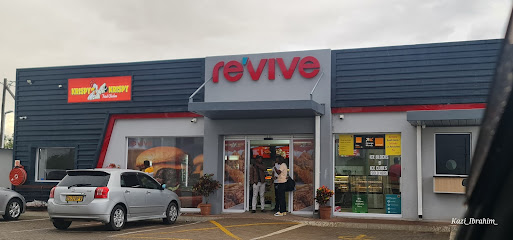
OK Furniture Serowe
Explore a world of stylish and affordable home furnishings at OK Furniture Serowe, where quality meets design in every piece.
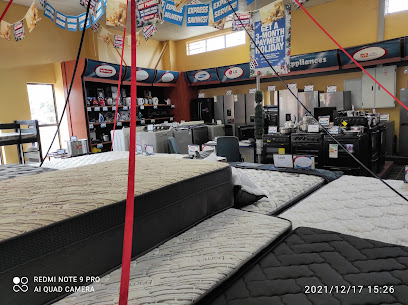
Emmanuel Tuck Shop
Discover the authentic taste of Botswana at Emmanuel Tuck Shop in Serowe – where local flavors meet warm hospitality.

Serowe
Explore Serowe: A vibrant town steeped in tradition, culture, and natural beauty at the heart of Botswana.
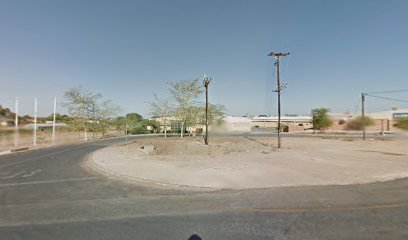
Markets, malls and hidden boutiques
SPAR Boiteko Junction
Explore SPAR Boiteko Junction in Serowe for a delightful shopping experience filled with fresh produce and local flavors.
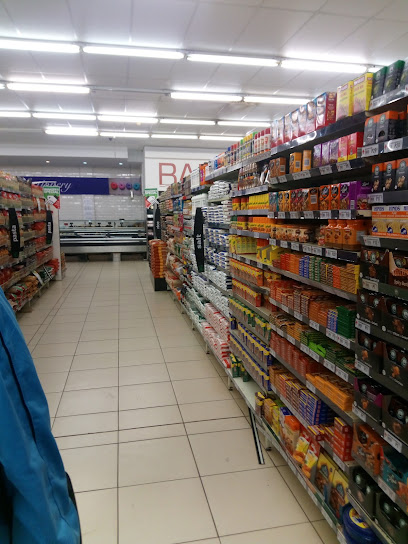
SPAR Serowe
Experience local shopping at SPAR Serowe, your go-to supermarket in Botswana for fresh produce and culinary delights.
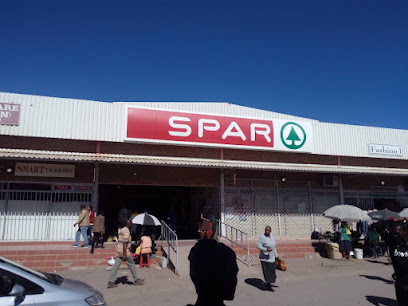
SEROWE CHOPPIES
Experience local culture at Serowe Choppies, your go-to store in Serowe, Botswana for fresh produce, local snacks, and friendly service.
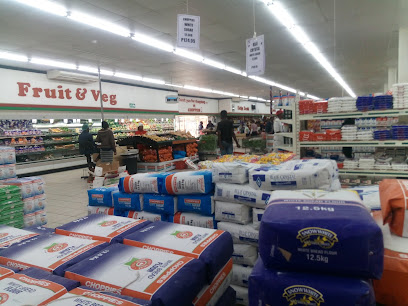
Choppies Store
Discover Choppies Store in Serowe, a vibrant shopping mall offering a variety of local products and a unique shopping experience in Botswana.
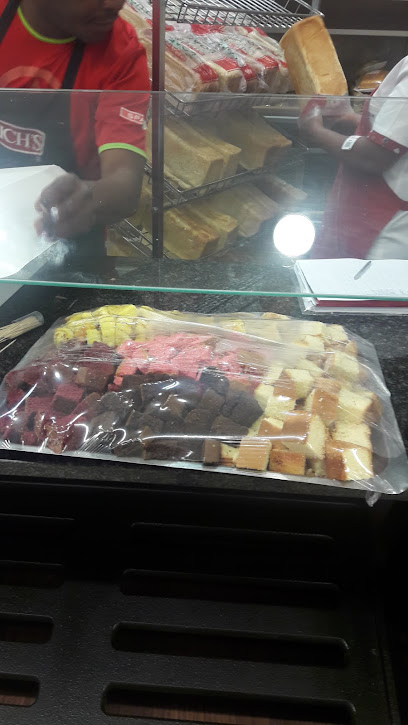
Usave Serowe
Experience local shopping at Usave Serowe, where authentic Botswana products meet everyday essentials in a friendly grocery store atmosphere.
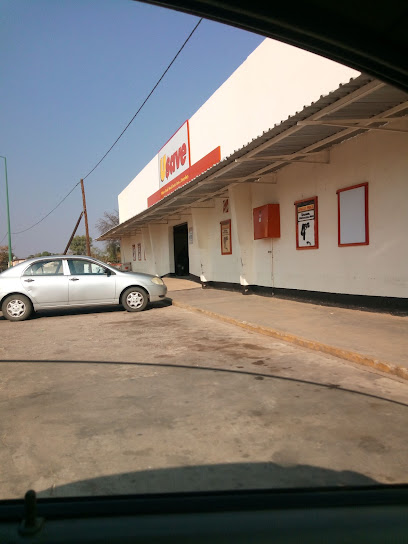
Mr Price / MRP
Explore stylish and affordable clothing at Mr Price in Serowe, your go-to destination for trendy fashion in Botswana.
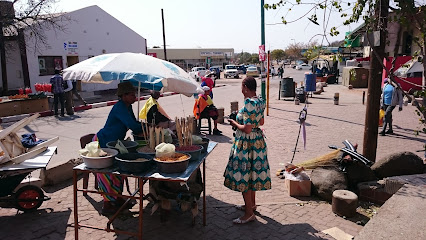
Woolworths Serowe
Explore Woolworths Serowe for a unique shopping experience in Botswana, offering clothing and essentials in a vibrant mall setting.

PEP Serowe
Explore PEP Serowe for trendy and affordable clothing for the whole family, all in a welcoming and stylish shopping environment.
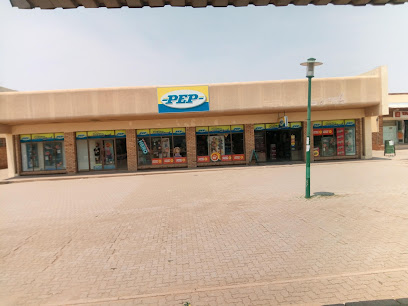
Saverite
Experience the essence of Botswana at Saverite Grocery Store in Serowe, where local flavors and fresh produce meet friendly service.
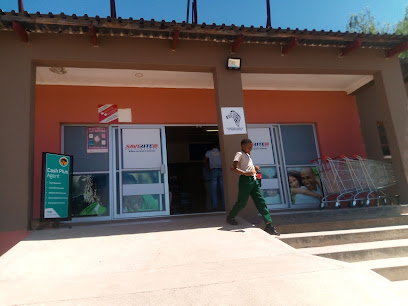
TOPS at SPAR Boiteko Junction
Discover an extensive range of local and international beverages at TOPS at SPAR Boiteko Junction, the premier liquor store in Serowe, Botswana.
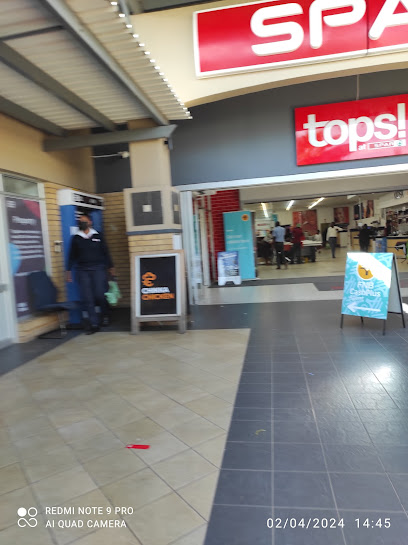
B&G HARDWARE MALL
Explore B&G Hardware Mall in Serowe, Botswana, your ultimate destination for top-quality hardware and home improvement products.
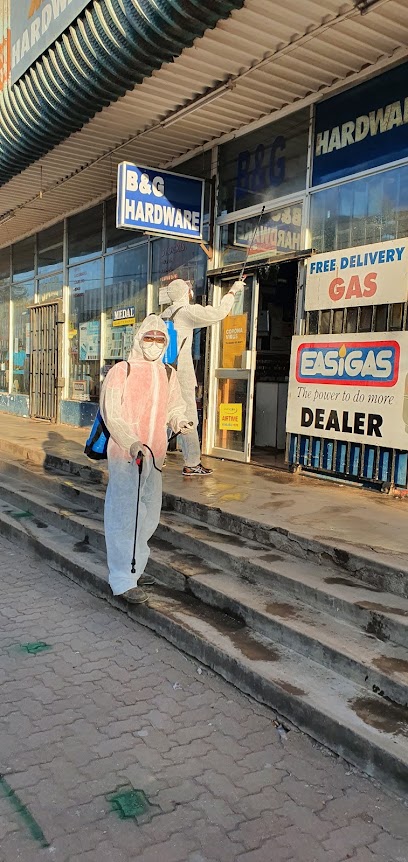
Mother Earth Florist
Discover the vibrant blooms and unique floral arrangements at Mother Earth Florist in Serowe, Botswana - a floral paradise for every visitor.
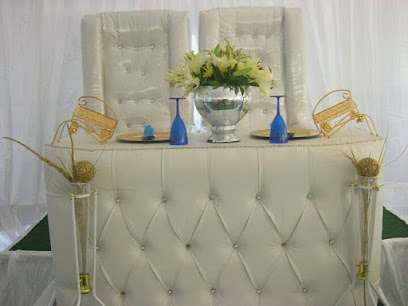
Dunns Serowe
Discover the latest fashion trends at Dunns Serowe, your ultimate shopping destination for stylish men's and women's clothing in Botswana.
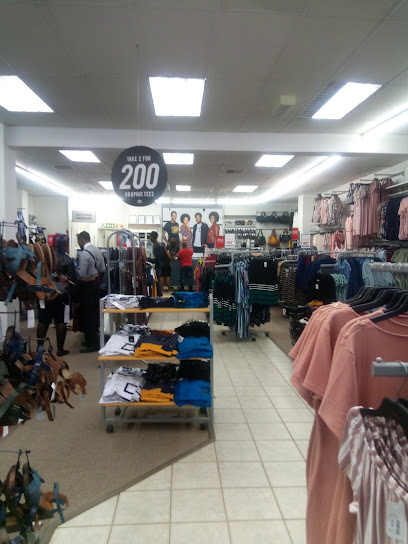
Mokwena General dealer
Explore Mokwena General Dealer in Serowe for authentic local products, friendly service, and a taste of Botswana's vibrant culture.
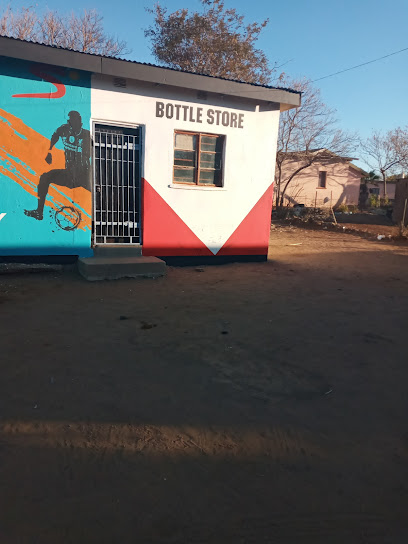
Jet Serowe
Explore Jet Serowe for a diverse selection of stylish clothing in the heart of Botswana's vibrant shopping scene.
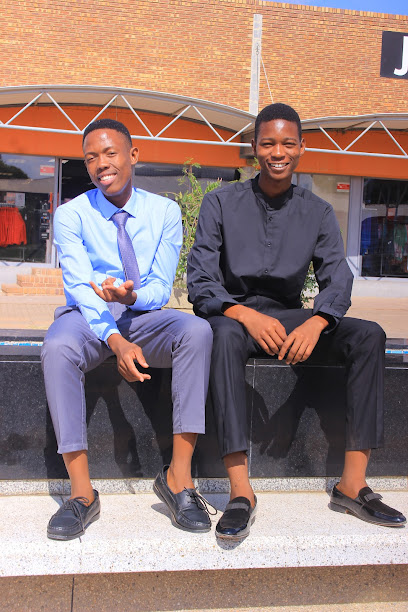
Essential bars & hidden hideouts
The Winning Lounge Liquor Restaurant
Experience the vibrant nightlife at The Winning Lounge in Serowe, a lively bar with an extensive drink menu and a welcoming atmosphere.
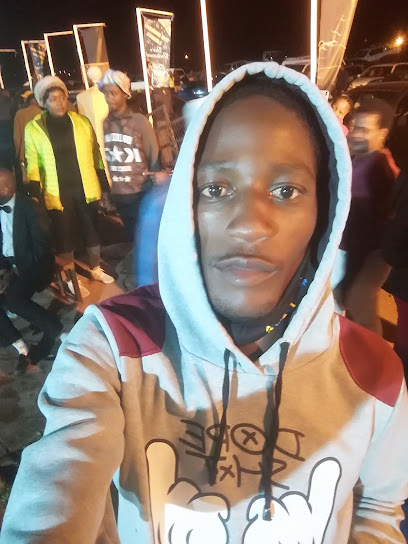
Guzzlers Pub
Discover the vibrant culture of Botswana at Guzzlers Pub in Serowe, where local drinks and friendly faces await every visitor.
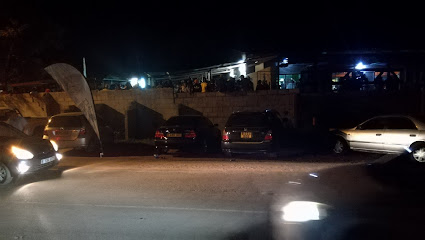
Shine Down Bar
Discover the vibrant nightlife of Serowe at Shine Down Bar, where locals and tourists come together for drinks and good times.

Ponto finale bar
Experience the vibrant nightlife at Ponto Finale Bar in Serowe, Botswana, where locals and tourists gather for drinks and good company.

Sedze Bar
Experience the local nightlife and culture at Sedze Bar in Serowe, the perfect spot for drinks and mingling with locals.
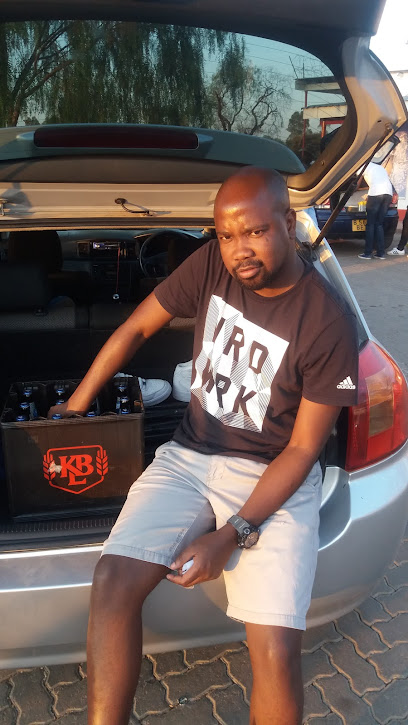
The Place Liquor Restaurant
Experience the vibrant nightlife at The Place Liquor Restaurant in Serowe, where refreshing drinks and local culture meet in a lively atmosphere.
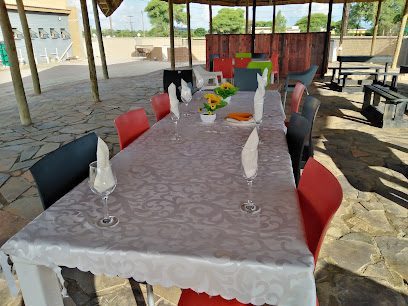
Nelgo Bar
Discover the lively spirit of Nelgo Bar in Serowe, a perfect spot for drinks, local music, and a taste of Botswana's vibrant nightlife.

PATKAY BAR
Experience the lively ambiance and local flavor at Patkay Bar in Serowe, where drinks and camaraderie await every visitor.
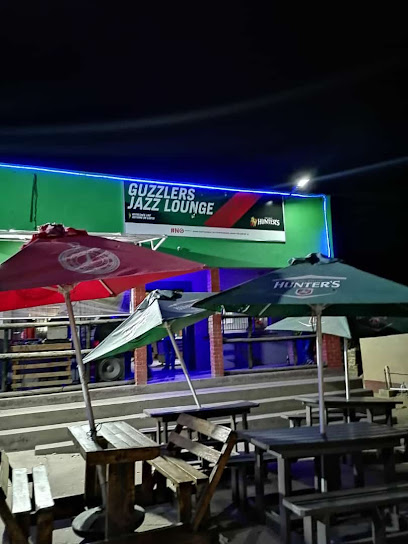
Easy Come Bar
Discover the vibrant atmosphere of Easy Come Bar in Serowe, the perfect place to unwind and experience Botswana's local culture.
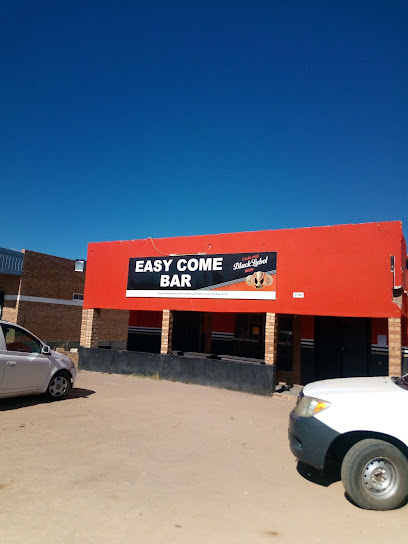
Lapson's Place
Experience the vibrant nightlife at Lapson's Place in Serowe, a top destination for refreshing drinks and local camaraderie.
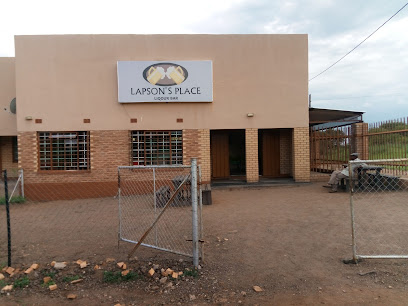
Middle Star Bar
Discover the lively atmosphere and refreshing drinks at Middle Star Bar in Serowe, a perfect retreat for tourists looking to unwind.
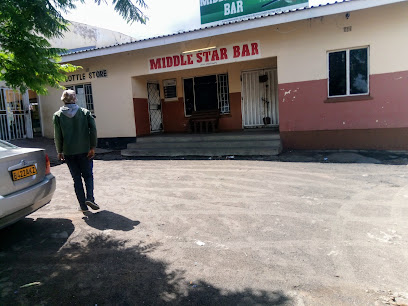
Setumule Bar
Experience the vibrant nightlife of Serowe at Setumule Bar, a local favorite for authentic drinks and cultural encounters.
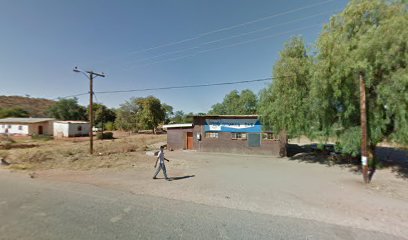
Sego Sa Sechaba
Experience the lively ambiance and local flavor at Sego Sa Sechaba, a must-visit bar in Serowe for an authentic taste of Botswana's culture.

Two Roses Bar
Experience the local nightlife and vibrant atmosphere at Two Roses Bar in Serowe, the perfect spot for relaxation and socializing.

Local Phrases
-
- HelloDumela
[doo-meh-lah] - GoodbyeTsamaya sentle
[tsa-ma-ya sen-tleh] - YesEe
[ee] - NoNnyaa
[nyah] - Please/You're welcomeKe kopa
[keh koh-pah] - Thank youKe a leboga
[keh ah leh-boh-gah] - Excuse me/SorryNtshwarele
[ntshwa-reh-leh] - How are you?O tsogile jang?
[oh tso-gee-leh jahng] - Fine. And you?Rona re tsogile
[roh-nah reh tso-gee-leh] - Do you speak English?O bua se se tlhagane?
[oh boo-ah se se tlah-gah-neh] - I don't understandGa ke itse
[ga kee eet-seh]
- HelloDumela
-
- I'd like to see the menu, pleaseKe kopa go bona menu
[keh koh-pah goh boh-nah meh-noo] - I don't eat meatGa ke tshwanetse ka nyama
[ga keh tshwa-neht-seh kah nyah-mah] - Cheers!Pholo e ntle
[phoh-loh eh ntleh] - I would like to pay, pleaseKe kopa go dira phoso
[keh koh-pah goh dee-rah phoh-soh]
- I'd like to see the menu, pleaseKe kopa go bona menu
-
- Help!Boitumelo!
[boi-too-meh-loh] - Go away!Tla go tsamaya!
[tlah goh tsa-ma-ya] - Call the Police!Bona matlha a bolisi!
[boh-nah maht-lah ah boh-lee-see] - Call a doctor!Bona ngaka!
[boh-nah ngah-kah] - I'm lostKe itumedisitswe
[keh ee-too-meh-dee-see-tsweh] - I'm illKe itlhobogile
[keh ee-tloh-boh-gee-leh]
- Help!Boitumelo!
-
- I'd like to buy...Ke kopa go rekisa...
[keh koh-pah go reh-kee-sah] - I'm just lookingKe batla go bona fela
[keh baht-lah goh boh-nah feh-lah] - How much is it?E bokae?
[eh boh-kah-eh] - That's too expensiveKe nna ya ka nnete
[keh nah yah kah nnah-teh] - Can you lower the price?O ka bolela bokae?
[oh kah boh-leh-lah boh-kah-eh]
- I'd like to buy...Ke kopa go rekisa...
-
- What time is it?Ke nako efe?
[keh nah-koh eh-feh] - It's one o'clockKe nako e e fela
[keh nah-koh eh eh feh-lah] - Half past (10)Nako e le kae (le la le se lele)
[nah-koh eh leh kah-eh (leh lah leh seh leh-leh)] - MorningNako ya boroko
[nah-koh yah boh-roh-koh] - AfternoonNako ya sekgoro
[nah-koh yah sehk-go-roh] - EveningNako ya maswe
[nah-koh yah mah-sweh] - YesterdayLatsatsi la borra
[laht-saht-see lah boh-rrah] - TodayLatsatsi le
[laht-saht-see leh] - TomorrowLatsatsi la boitumelo
[laht-saht-see lah boi-too-meh-loh] - 1Moswi
[moh-swee] - 2Pabedi
[pah-beh-dee] - 3Pakgatlo
[pah-kah-tloh] - 4Makgolo a mantsi
[mah-koh-loh ah mahn-tsee] - 5Mararo a mantsi
[mah-rah-roh ah mahn-tsee] - 6Matsogo a mantsi
[mah-tsoh-goh ah mahn-tsee] - 7Matswalo a mantsi
[mah-tswah-loh ah mahn-tsee] - 8Mashome a mantsi
[mah-shoh-meh ah mahn-tsee] - 9Mantsi a mokgolo
[mahn-tsee ah moh-koh-loh] - 10Lesome la mantsi
[leh-soh-meh lah mahn-tsee]
- What time is it?Ke nako efe?
-
- Where's a/the...?Ke kae...?
[keh kah-eh] - What's the address?Ke eng mongwe le mongwe?
[keh eh-ng mon-gweh leh mon-gweh] - Can you show me (on the map)?O ka nna o itsele (ka map)
[oh kah nah oh eet-seh-leh (kah map)] - When's the next (bus)?E maswe a ka se bonang (bus)?
[eh mah-sweh ah kah seh boh-nahng (bus)] - A ticket (to ....)Tikete (go ....)
[tee-keh-teh goh]
- Where's a/the...?Ke kae...?
History of Serowe
-
Serowe, one of the largest villages in Botswana, was founded in 1902 by the Bangwato people under the leadership of Khama III. The village became the new capital of the Bangwato kingdom, replacing the former capital, Palapye. Khama III chose the location for its fertile land and strategic position, which allowed for better defense and agricultural development.
-
The Khama III Memorial Museum, located in Serowe, is dedicated to preserving the history and legacy of Khama III and the Bangwato people. The museum offers exhibits that showcase traditional Bangwato artifacts, photographs, and documents that provide insight into the history and culture of the region. It serves as a key cultural and educational resource for both locals and visitors.
-
Serowe played a significant role in Botswana's journey to independence. It was the birthplace of Sir Seretse Khama, Botswana's first president and a pivotal figure in the independence movement. His efforts to unite the country and negotiate with the British colonial government were instrumental in Botswana achieving independence in 1966.
-
The Kgotla is a traditional public meeting space in Serowe where community members gather to discuss important issues, resolve disputes, and make decisions. It is a central element of Tswana culture and governance, reflecting the democratic values and communal decision-making processes that are deeply rooted in the history of the Bangwato people.
-
Serowe is known for its distinctive architectural heritage, which includes traditional Tswana rondavels and more contemporary structures influenced by modern architectural styles. The village's layout and buildings reflect a blend of historical and cultural elements that provide a unique glimpse into the evolution of architecture in Botswana.
-
The Bangwato Royal Cemetery in Serowe is the final resting place of many prominent leaders of the Bangwato people, including Khama III and Seretse Khama. It is a site of great historical and cultural importance, offering a place of reflection and remembrance for the community and visitors interested in the legacy of the Bangwato leadership.
-
In recent years, Serowe has seen significant modernization and development, including improvements in infrastructure, education, and healthcare. Despite these changes, the village has managed to preserve its cultural heritage and traditional values, making it a unique blend of old and new that continues to attract visitors interested in experiencing authentic Tswana culture.
Serowe Essentials
-
Serowe is located in the Central District of Botswana. The nearest international airport is Sir Seretse Khama International Airport in Gaborone, approximately 320 kilometers away. From Gaborone, you can take a bus or a shared taxi, which typically takes around 4 to 5 hours by road. Car rentals are also available at the airport and in Gaborone for those who prefer to drive themselves.
-
Serowe is a relatively small town, and many attractions are within walking distance. Local taxis and shared taxis are readily available for longer distances and are relatively inexpensive. There are also bus services connecting Serowe to nearby towns and villages. Renting a car can be a convenient option for exploring the surrounding areas at your own pace.
-
The official currency in Botswana is the Botswana Pula (BWP). Credit cards are accepted in some hotels, restaurants, and shops, but it is advisable to carry cash, especially in smaller establishments and rural areas. ATMs are available in Serowe, but it is wise to withdraw sufficient cash in larger cities like Gaborone before traveling to ensure you have enough funds.
-
Serowe is generally a safe destination for tourists. However, like any travel destination, it is advisable to take standard precautions. Avoid walking alone at night in unfamiliar areas and keep an eye on your belongings in crowded places. While Serowe does not have specific high-crime areas targeting tourists, it is always best to stay vigilant and aware of your surroundings.
-
In case of emergency, dial 999 for immediate assistance. The local police station and medical facilities are available in Serowe. It is recommended to have travel insurance that covers medical emergencies. For minor health issues, there are pharmacies in the town where you can purchase over-the-counter medications.
-
Fashion: Do dress modestly, especially when visiting cultural or religious sites. Avoid wearing revealing clothing. Religion: Do respect local customs and traditions. Always ask for permission before taking photos of people or religious ceremonies. Public Transport: Do be respectful and give up your seat to elderly passengers. Don't eat or drink on public transport. Greetings: Do greet people with a handshake. A smile and a friendly greeting in Setswana, 'Dumelang,' are always appreciated. Eating & Drinking: Do try local delicacies and accept food offerings graciously. Don't refuse hospitality, as it is considered impolite.
-
To experience Serowe like a local, visit the local markets where you can buy fresh produce and traditional Botswana goods. Engage with locals, as they are often friendly and willing to share stories about the town's history and culture. Don't miss visiting the Khama Rhino Sanctuary for a chance to see rhinos and other wildlife in their natural habitat. For a unique experience, explore the Serowe Cultural Village to learn about the traditional lifestyles and customs of the Batswana people.
Nearby Cities to Serowe
-
Things To Do in Palapye
-
Things To Do in Mahalapye
-
Things To Do in Selebi-Phikwe
-
Things To Do in Francistown
-
Things To Do in Molepolole
-
Things To Do in Gaborone
-
Things To Do in Polokwane
-
Things To Do in Lobatse
-
Things To Do in Pretoria
-
Things To Do in Maun
-
Things To Do in Johannesburg
-
Things To Do in Hwange
-
Things To Do in Gweru
-
Things To Do in Masvingo
-
Things To Do in Victoria Falls




